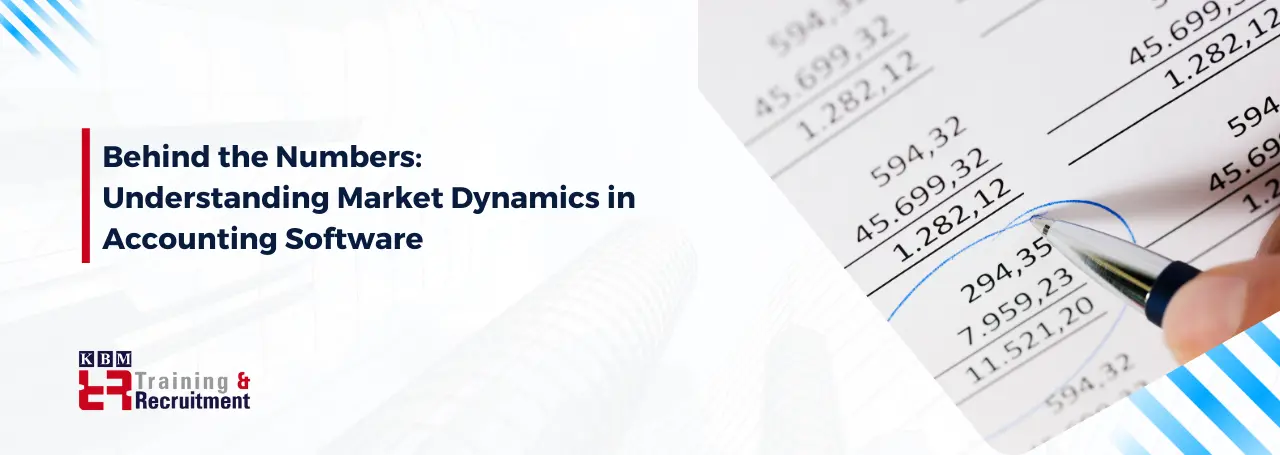In today's digital era, accounting software has become indispensable for businesses of all sizes, providing streamlined financial management, reporting, and compliance solutions.
However, the accounting software market is dynamic and constantly changing, shaped by various factors such as technological advancements, changing business needs, and competitive landscapes.
In this blog, we'll dive deep into the market dynamics of accounting software, exploring key trends, drivers, and challenges that influence the industry.
Technological Advancements
The quicker pace of technological innovation is a primary driver of market dynamics in the accounting software industry. Advancements in cloud computing, artificial intelligence, machine learning, and blockchain technology are reshaping the landscape, enabling vendors to develop more sophisticated, efficient, and user-friendly solutions.
Cloud-based accounting software, in particular, has gained prominence due to its flexibility, scalability, and accessibility. It allows companies to access their financial information from anywhere at any time.
Changing Business Needs
As businesses evolve and grow, their accounting software needs change, driving demand for more robust and customizable solutions. Small companies require basic accounting functionality, such as invoicing and expense tracking. In contrast, larger enterprises may require advanced features for multi-currency transactions, inventory management, and enterprise resource planning (ERP) integration.
Additionally, businesses across industries have unique regulatory requirements and compliance standards that accounting software vendors must address.
Competitive Landscape
The accounting software market is exceptionally competitive, with many vendors contending for market share and differentiation. Key players such as Intuit QuickBooks, Xero, Sage, FreshBooks, and Zoho Books dominate the market, offering a range of features, pricing plans, and customer support options to attract and retain customers.
Smaller players and startups contribute to the competitive landscape, introducing niche solutions tailored to specific industries or business needs.
Shift Towards Subscription-Based Models
A notable trend in the accounting software market is the shift towards subscription-based pricing models, where clients pay a monthly or yearly subscription fee for access to software and services.
This model offers several benefits for both vendors and customers, including predictable revenue streams, lower upfront costs, automatic updates, and ongoing customer support.
Subscription-based pricing also allows vendors to offer tiered pricing plans with different levels of functionality to cater to diverse customer segments.
Emphasis on Data Security and Compliance
With the increasing digitization of financial data, data security and compliance have become top priorities for businesses and accounting software vendors.
Customers expect robust security measures to protect their sensitive financial information from cyber threats, data breaches, and unauthorized access. Additionally, accounting software vendors must comply with industry rules and standards, such as GDPR, HIPAA, and SOC 2, to ensure the privacy and integrity of customer data.
Integration and Interoperability
Integration and interoperability are critical considerations for businesses when selecting accounting software solutions. Businesses often use multiple software applications for different activities, such as customer relationship management (CRM), payroll processing, etc.
Seamless integration between accounting software and other business applications allows for the free flow of information, removing the demand for manual data entry and improving overall efficiency and accuracy.
Conclusion
The accounting software market is driven by various factors, including technological advancements, changing business needs, competitive dynamics, pricing models, data security, and integration requirements. Understanding these market dynamics is essential for businesses seeking to invest in accounting software solutions that align with their specific requirements and goals.
By staying informed about emerging trends, evaluating vendor offerings, and prioritizing security and compliance, businesses can leverage accounting software to streamline financial management processes, drive growth, and achieve long-term goals in today's dynamic business landscape.






















